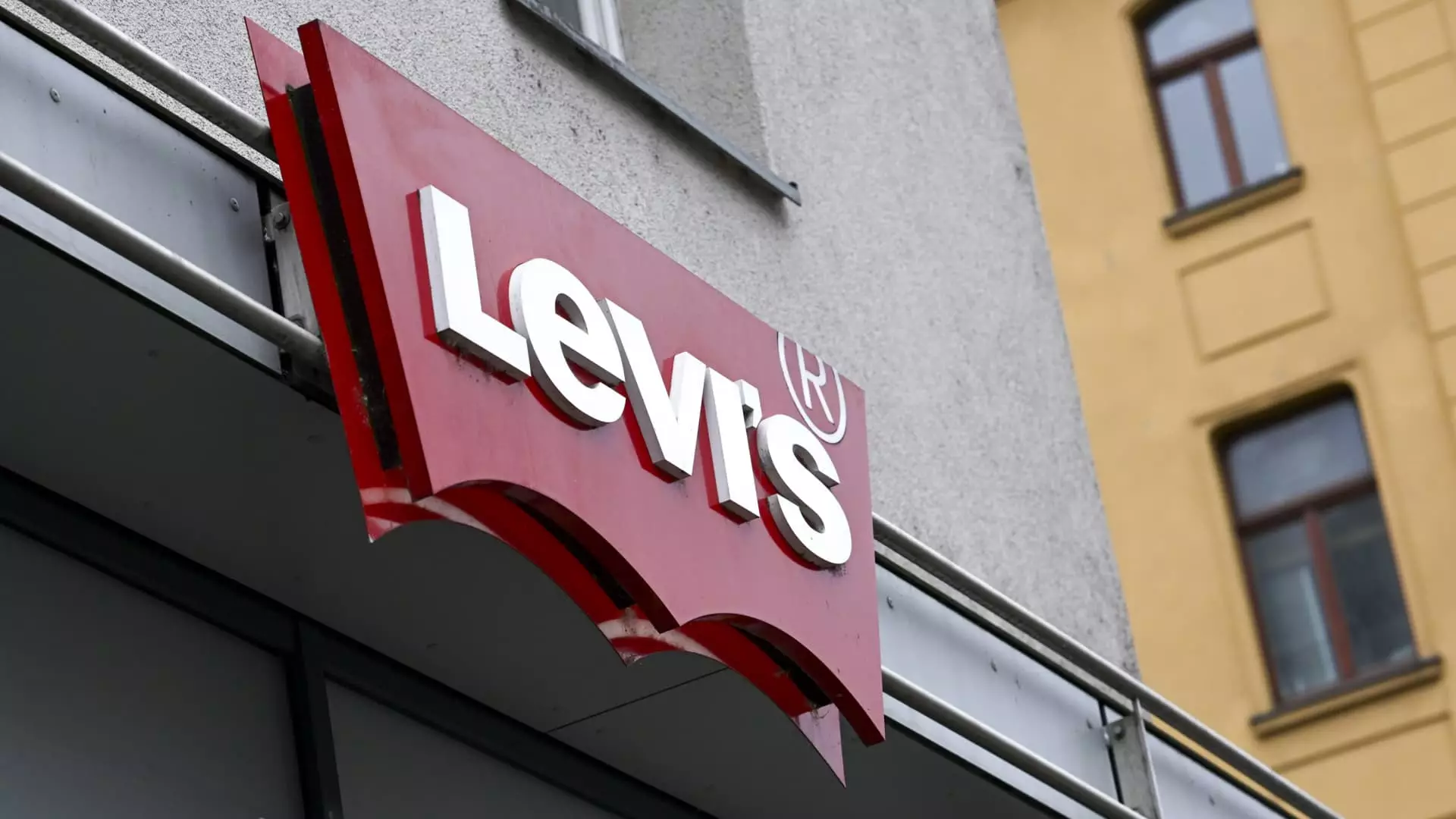Levi Strauss & Co., renowned for its iconic denim, has recently made headlines with its bold decision to sell its Dockers line for $311 million to Authentic Brands Group (ABG). This move marks a significant pivot for Levi’s, a company that has long stood as a pillar of American fashion. The sale is not merely about unloading a brand; it’s about strategic realignment in a market where adaptability is key. In truth, this is a moment that reflects the turbulent waters of retail where brands must constantly evolve to stay afloat.
Levi’s CEO, Michelle Gass, has consistently stated that the company is setting its sights on fostering its direct-to-consumer model and enhancing its global footprint. The acknowledgment of Dockers’ fading relevance in the American market highlights a sobering truth. Despite its legacy, khakis—once a wardrobe staple—have fallen out of favor, overshadowed by denim’s enduring popularity. By no means is this an indictment on Dockers’ potential; rather, it is an illustration of Levi’s acute awareness of market trends and consumer behavior.
Redefining the Brand Landscape
The retail landscape is fraught with challenges and changing consumer preferences. Levi’s decision to divest Dockers comes as they recognize the need to concentrate on core strengths while letting a brand like Dockers evolve under fresh management. Authentic Brands Group will take the reins of Dockers’ intellectual property while entrusting operations to Centric Brands, which can bring a specialized focus to revamping the brand.
ABG is uniquely positioned to leverage its extensive licensing network of 1,700 partners across different regions. They will have the expertise to navigate and unlock international markets where Dockers still retains a loyal following. This strategic acquisition is a testament to the potential that lies in evaluating not just what a brand has been—but what it can become. The transition to a global brand management approach opens a multitude of opportunities. As Matt Maddox from ABG articulated, the Dockers brand possesses a remarkable legacy in casual wear, but the future hinges on innovative reimagining to appeal to younger consumers.
Charting a Course Amidst Industry Giants
Levi’s decision also sheds light on a trend growing within the retail sector—companies are increasingly focusing on consolidating their brand portfolios and avoiding overlap. By selling Dockers, Levi’s is creating breathing room to sharpen its focus on its flagship denim line and its burgeoning athleisure label, Beyond Yoga. This strategy is not just about trimming the excess but reinforcing the quality and relevance of what remains.
In a world where fashion cycles rapidly, brands must navigate through the complexities of overlapping identities, and unfortunately, not every brand can thrive. This is not merely a sale; it is an opportunity for Levi’s to strengthen its position against formidable competitors. The decision reflects a keen awareness of market dynamics that can make or break a fashion giant.
Potential Consequences for the Future
While the sale may be seen as a cautious retreat from an underperforming line, it raises questions about the long-term implications. Dockers, once a robust contender in casualwear, is now entrusting its future to a company with a proven track record in brand management. However, the transition to Authentic also introduces uncertainty. As the brand is restructured under new stewardship, will it retain the essence that once made it a beloved choice for mid-tier casual wear?
Moreover, the emphasis on the international market raises an important discussion about localization versus globalization. Successfully penetrating markets in Latin America, Europe, and Asia requires more than just a brand name; it necessitates cultural understanding and consumer relatability. The risk remains that without thoughtful execution, Dockers could simply become another nameless brand lost in a sea of globalization.
Paving a New Path Forward
In essence, Levi Strauss’s decision to pass the baton on Dockers encapsulates a critical crossroads in the fashion industry. It compels us to evaluate what it means for brands to adapt authentically while navigating the complexities of contemporary consumerism. Levi’s decisive move offers a glimpse into the future of retail, challenging brands to reconsider their legacies, prioritize consumer demands, and adapt or risk becoming obsolete in a rapidly evolving marketplace.



Leave a Reply